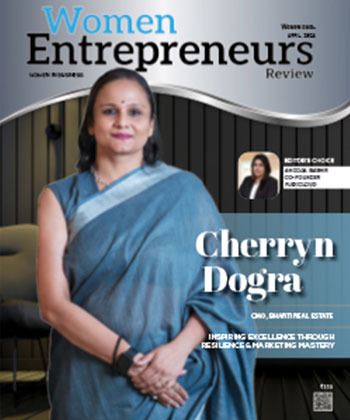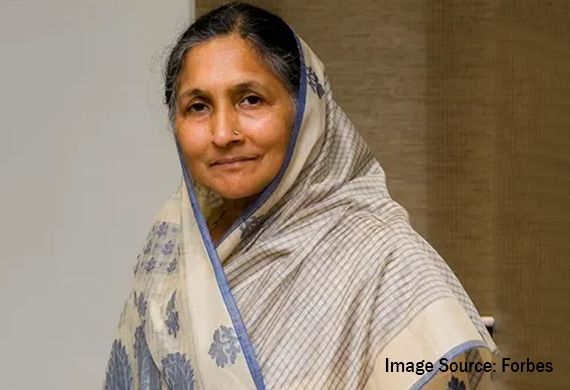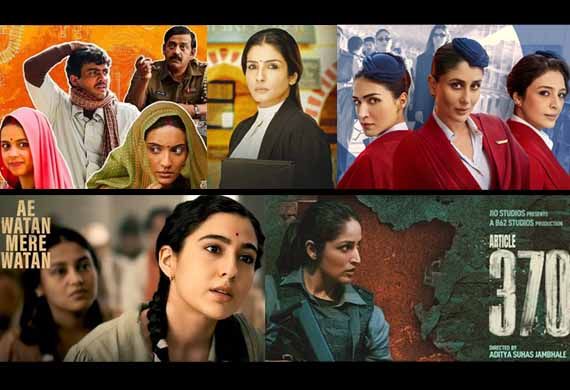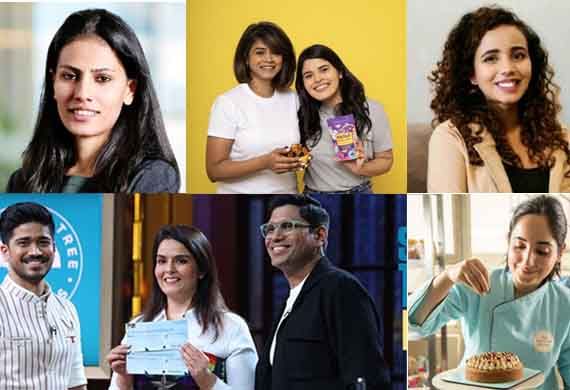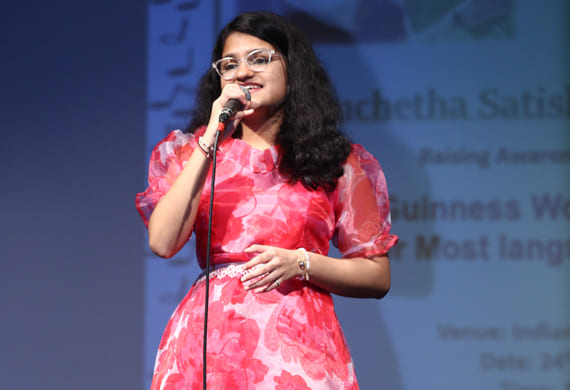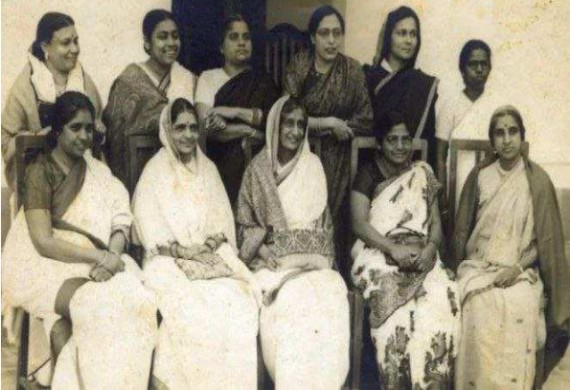
15 Women Leaders Who Contributed to the making of the Indian Constitution
By: WE Staff
As the 73rd anniversary of the adoption of the Indian Constitution arrives on November 26th, 2022, It is essential to understand the diversity in the constitution-making process. The article talks about the accomplishments of women leaders who have played a significant role in the making of the Indian Constitution.
As the 73rd anniversary of the adoption of the Indian Constitution arrives on November 26th, 2022, it is essential to understand the diversity in the constitution-making process. Women's involvement and contribution in recognising the need for social action and social change have generally been overlooked, but their accomplishments are without a doubt significant and deserve to be recognized. B.R. Ambedkar was correct when he said, "Unity is meaningless without the accompaniment of women. Without educated women, education is useless, and without female strength, agitation is insufficient."
A new constituent assembly was established in December 1946 with 389 members (later 299), including 12 women (later 15), and was tasked with drafting the constitution for an impending independent India. We must broaden our perspectives in order to better understand the contributions made by the 15 women who worked on India's Constitution because most of what we currently read about and understand about the history of our women focuses on the valiant battles they fought and the relief they brought through their care. These women had faced hardships (such as child marriages, widowhood, humiliation, etc.), but they still participated in the constituent assembly's discussions and debates in order to provide the nation with a fair and just constitution.
These women, like other members, came from diverse backgrounds and represented the views of not only women but also socially deprived people from different professions and ways of life. They were lawyers, reformists, and freedom fighters and many of them belonged to several women’s organizations and were a part of feminist movements since 1917. They were either elected or nominated into the constituent assembly following the 1945 elections, it is also important to note that Dr. Muthu Lakshmi Reddy was the first woman to be elected to a legislative assembly in 1927.
They represented a variety of ideological viewpoints on various topics and actively participated in the socio-economic and socio-political issues they were inherently concerned about, which is evident in their zeal and contributions to the assembly's debate and constitution-making.
Ammu Swaminathan
Ammu Swaminathan, also known as A. V. Ammakuti, was an Indian social worker and political activist who served in the Constituent Assembly of India from 22 April 1894 until 4 July 1978. Ammu joined the Indian independence movement as a follower of Mahatma Gandhi owing to the influence of her husband. She served in the Indian Constituent Assembly after the country attained independence.
Ammu Swaminadhan was chosen to represent Madras State in the Rajya Sabha in 1952. She was involved with numerous cultural and social groups, and from November 1960 to March 1965, she presided over the Bharat Scouts and Guides. During the first International Women's Year in 1975, she was also chosen as "Mother of the Year."
Hansa Jivraj
Hansa Jivraj Mehta was an Indian reformist, social activist, educator, independence campaigner, feminist, and author. She was one of the 15 women who served in the constituent assembly that produced the Indian Constitution after the country attained independence. She was a part of the subcommittee on fundamental rights and the advisory committee. She fought for women's rights in India, including equality and justice.
Dame Rajkumari Bibiji Amrit Kaur
Dame Rajkumari Bibiji Amrit Kaur was an Indian activist and politician. Following her long association with the Indian independence struggle, she was appointed India's first Health Minister in 1947 and served until 1957. She played a key role in establishing the National Institute of Sports, Patiala, while also serving as minister of sports and urban development. Kaur brought about a number of healthcare improvements in India during her time there, and she is well-known for both her contributions to the field and her support of women's rights. Kaur was a part of the Indian Constituent Assembly, which drafted the country's constitution.
Dakshayani Velayudhan
Dakshayani Velayudhan was a member of the Indian parliament and a champion for the underprivileged. She was one of the first generations of members of the Pulayar community to receive an education. She is one of nine women who served in India's Constituent Assembly and holds a number of distinctions, including being the first woman from her community to wear an upper cloth, the first woman from a Scheduled Caste to graduate in India, a science graduate, and a member of the Cochin Legislative Council. However, it is inaccurate to say that she was among the first women in her neighbourhood to wear an upper cloth.
Annie Mascarene
Activist for Indian independence, politician, and attorney Annie Mascarene was the first woman to serve as a member of the Indian Parliament. She was from Thiruvananthapuram, Kerala. Mascarene was one of the 15 women elected to the 299-member Constituent Assembly of India in 1946, which was tasked with creating the Indian Constitution. She was a member of the select committee for the Assembly that examined the Hindu Code Bill.
Begum Qudsia Aijaz Rasul
The sole Muslim woman who participated in the Indian Constituent Assembly's drafting of the Constitution was Begum Qudsia Aijaz Rasul. She was one of the final 28 Muslim League members to be elected to the Indian Constituent Assembly in 1946. In the Assembly, she was the sole Muslim female. Begum Aijaz Rasul joined the Congress in 1950 after the Muslim League in India was disbanded. She was a member of the Uttar Pradesh Legislative Assembly from 1969 to 1989 and was elected to the Rajya Sabha in 1952–1954.
Renuka Ray
Renuka Ray was a well-known Indian politician, social activist, and independence fighter. She was appointed as a representative of Indian women to the Central Legislative Assembly in 1943. In 1946–1947, she served as a member of the Indian Constituent Assembly. She served as West Bengal's Minister of Relief and Rehabilitation from 1952 to 1957. From the Malda Lok Sabha seat, she also served as a Lok Sabha member from 1957 to 1967. She presided over the Renuka Ray Committee, also known as the Social Welfare and Welfare of Backward Classes Committee, in 1959.
Purnima Banerjee
Purnima Banerjee, an anti-colonial nationalist from India, served in the Constituent Assembly of India. She participated in the Quit India Movement and the Salt March, and as a result, she was put in jail. She afterwards was elected to the Indian Constituent Assembly as well as the Uttar Pradesh Legislative Assembly.
Sarojini Naidu
Sarojini Naidu was an Indian political activist, feminist, and poet. She played a significant role in India's fight for independence from colonial control as a supporter of civil rights, women's emancipation, and anti-imperialist beliefs. She was also the first Indian woman to hold the positions of governor of an Indian state and president of the Indian National Congress. The first woman to assume the position of governor in the Dominion of India, she was chosen as the President of the Indian National Congress in 1925 and then elevated to that position in 1947 to become the Governor of the United Provinces.
Sucheta Kripalani
Indian politician and freedom activist Sucheta Kripalani. She was among the few women elected to India's Constituent Assembly. She was a member of the subcommittee that drafted the Indian Constitution and was elected as the first female chief minister of Uttar Pradesh from the Kanpur constituency. She joined the group that drafted the Indian constitution's guiding principles. She performed Vande Mataram in the Constituent Assembly's Independence Session on August 14, 1947, just before Jawaharlal Nehru gave his renowned "Tryst with Destiny" speech. She also started the All India Mahilla Congress, which was founded in 1940.
Vijaya Lakshmi Pandit
Vijaya Lakshmi Pandit was an Indian diplomat and politician who served as the sixth Governor of Maharashtra from 1962 to 1964 and as the eighth President of the United Nations General Assembly from 1953 to 1954, being the first woman to hold either position. In pre-independent India, Pandit was the first Indian woman to hold a cabinet position. She was chosen to serve as the minister of local self-government and public health after being elected to the United Provinces' provincial legislature in 1937. She served in this capacity twice, from 1946 to 1947 and until 1938. She was elected to the Constituent Assembly from the United Provinces in 1946.
Gammiidala Durgabi Deshmukh
Gammiidala Durgabi Deshmukh, often known as Lady Deshmukh, was an Indian political activist, lawyer, and social worker. She served on both the Indian Planning Commission and the Constituent Assembly of India. In the panel of chairman in the Constituent Assembly, she was the lone female. She had a key role in the passage of numerous social welfare policies. She was subsequently chosen to represent the Madras Province in the Constituent Assembly.
Kamla Chaudhry
Kamla Chaudhry was a Hindi-language short story writer. Chaudhry joined the Indian National Congress in the 1930s as part of the civil disobedience movement. Since then, she has taken a leading role in the Indian Independence Movement and has often been imprisoned by the British government. During the 54th All India Congress Committee session, she served as Senior Vice-Chairperson. She served as an elected representative in India's Constituent Assembly and, following the adoption of the constitution, as a member of the Provincial Government of India until 1952.
Leela Roy
Indian politician and reformer Leela Roy, was a radical communist. When major racial unrest broke out in Dhaka in 1941, she and Sarat Chandra Bose founded the Unity Board and National Service Brigade. She and her husband were both detained in 1942 during the Quit India Movement, which resulted in the closure of her magazine. She was chosen to serve in India's Constituent Assembly after being released in 1946.
Malati Devi Choudhury
Malati Devi Choudhury was a Gandhian and an advocate for Indian civil rights and freedom. She was a member of the Indian Constituent Assembly, but she was dissatisfied since she did not share the same opinions as the other members. Thakkarbappa persuaded her to join the Mahatma's well-known Noakhali yatra when it started.
After India gained its independence, Malati Choudhury did her best to emphasise the importance of education, particularly adult education, in rural reconstruction as both a member of the Indian Constituent Assembly and the President of the Utkal Pradesh Congress Committee.


